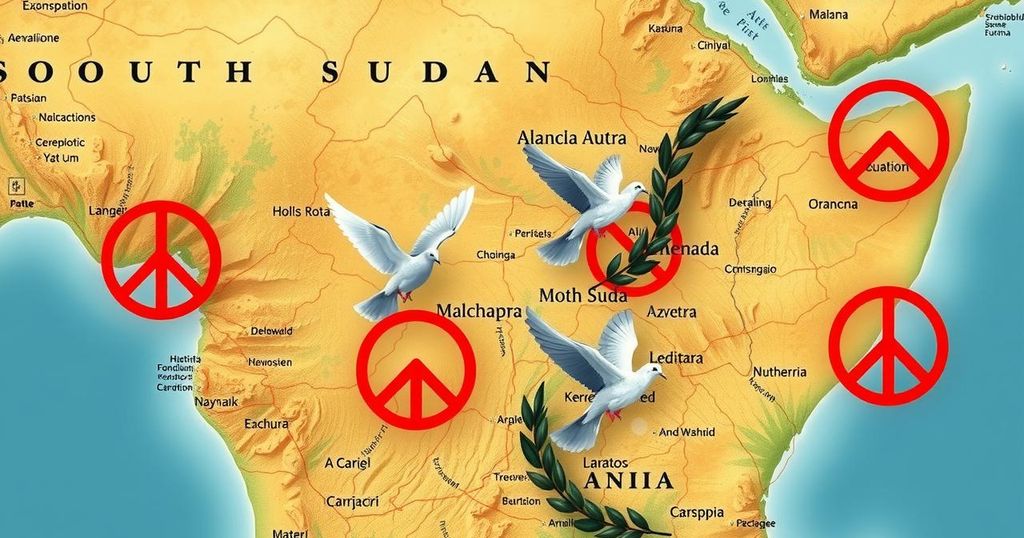Professor Jok Madut Jok warns that the 2018 peace agreement in South Sudan is collapsing, increasing tensions between President Salva Kiir and First Vice President Riek Machar. He cites the SPLA-IO’s dilemma, rising communal violence, economic crises, and the need for accountability from leaders. A return to civil conflict looms if action is not taken soon, emphasizing the importance of unification and reform.
Professor Jok Madut Jok, a distinguished South Sudanese political analyst and anthropology professor at Syracuse University, has expressed grave concerns regarding the collapse of the 2018 peace agreement in South Sudan. In a recent interview with Radio Tamazuj, he emphasized that the country is on the brink of renewed civil war due to escalating tensions between President Salva Kiir and First Vice President Riek Machar. He articulated that the opposition faction, the SPLM/A-IO, is at a critical juncture, needing to choose between accepting their diminishing influence or returning to armed conflict.
Professor Jok stated, “The peace agreement is collapsing.” He underscored the plight of Dr. Machar, who, he noted, is virtually under house arrest with fragmented leadership among his ranks. The control of strategic government positions by the ruling SPLM-IG party exacerbates the instability, with significant regions like Jonglei under dispute. “This suggests President Kiir is no longer committed to upholding the peace agreement,” he added, highlighting the precarious nature of the political environment.
The political landscape in South Sudan is further complicated by the increasing communal violence, which Professor Jok linked to the power struggles in Juba. He observed that conflicts, such as those between the Nuer and Jieng groups, are intensifying. Moreover, he criticized the Revitalized Agreement on the Resolution of the Conflict in South Sudan (R-ARCSS) for failing to address the deeper issues of violence faced by the populace, which continue despite a ceasefire between main factions.
In addition to the political turmoil, South Sudan is grappling with severe economic challenges, including disrupted markets and lost harvests attributed to the ongoing conflict in neighboring Sudan. Professor Jok warned that a return to full-scale war would spell disaster for the nation, stating that political leaders seem more invested in maintaining power than in the welfare of their citizens.
He also condemned the deployment of Ugandan People’s Defence Forces, arguing that their presence serves only the interests of the elite in power, rather than addressing the needs of South Sudanese communities. “The UPDF’s presence is seen as serving the interests of those in power, not the majority,” he remarked.
Professor Jok further highlighted discontent within the national army due to the government’s preference for foreign soldiers over their own unpaid troops, which undermines national unity and sovereignty. He urged South Sudanese citizens to unite and demand accountability from their leaders, emphasizing that a unified voice against injustice is crucial.
He warned that the international community might disengage from South Sudan if undemocratic practices persist. “If the SPLM-IG becomes dictatorial, the public will be too fearful to protest,” he cautioned, suggesting a pressing need for transitional leadership to pave the way for national survival. In conclusion, he stated, “South Sudan is at a crossroads. The choices made in the coming weeks and months will determine whether the country descends into further chaos or finds a path to lasting peace.”
In summary, Professor Jok Madut Jok delineates the imminent risks South Sudan faces as the 2018 peace agreement disintegrates. With political tensions, rising communal violence, economic turmoil, and a call for accountability, the future of the nation appears precarious. His insights resonate the urgent need for cohesive action and political reform to avert a regression into civil war and establish a durable peace.
Original Source: www.radiotamazuj.org






